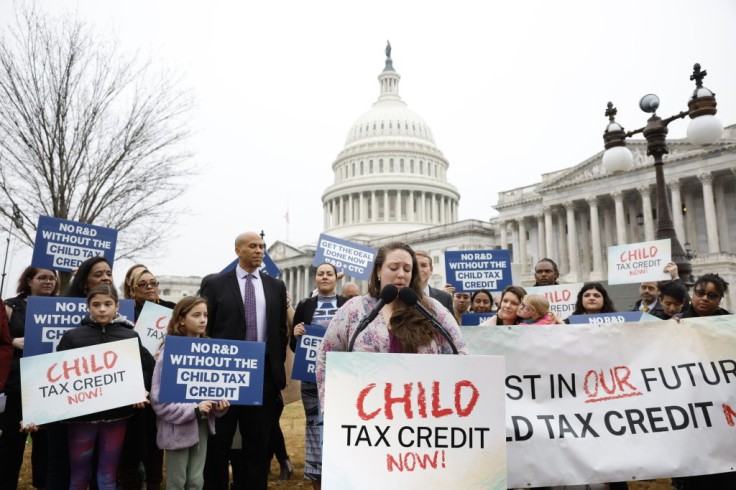
In a pivotal turn of events, the halls of Congress resonate with the advancement of a groundbreaking $78 billion bipartisan tax package.
Tucked within its provisions are potential alterations to the child tax credit, igniting anticipation as families across the nation eye the prospect of substantial relief during the impending tax season.
Proposed Changes in the $78 Billion Tax Package
Within the intricate folds of the $78 billion bipartisan tax package lie a series of proposed changes to the child tax credit that, if enacted, could reshape the financial landscape for millions of American families.
An estimated average tax cut of $680 for the 2023 tax year, as projected by the esteemed Urban-Brookings Tax Policy Center, adds an extra layer of significance to the potential benefits.
The package, laden with retroactive adjustments, seeks to broaden access to the child tax credit temporarily, offering a lifeline to those navigating the complexities of financial responsibilities.
As it stands, the child tax credit for the fiscal year 2023 assumes a pivotal role in the tax narrative, standing at a maximum of $2,000 per qualifying child under 17.
This provision, designed for a dollar-for-dollar reduction in taxes, predominantly caters to median-income Americans, ensuring most eligible individuals receive the full $2,000 owing to their typical tax liability.
However, the existing cap of $1,600 on the refundable portion of the credit creates hurdles for lower-income earners grappling with limited tax liability.
Revolutionizing the Child Tax Credit
Venturing into uncharted territory, the bipartisan tax bill unfolds a narrative of reform for the child tax credit, poised to address existing imbalances.
The refundable portion of the credit, poised for a significant transformation, is slated to ascend to $1,800 for the tax year 2023, with further increments earmarked for 2024 and 2025.
This transformative journey also introduces a novel calculation method, pivoting on a per-child basis. This strategic shift aims to expand access to the credit, particularly championing the cause of lower-income families blessed with multiple children.
Acknowledging the stark disparities in benefit distribution, this forward-looking approach within the bipartisan tax bill endeavors to ensure the child tax credit becomes a beacon of financial solace for those on the lower rungs of the economic ladder.
Notably, for tax years 2024 and 2025, filers gain the privilege of using the preceding year's earned income to calculate the credit, coupled with a provision adjusting the $2,000 tax credit for inflation.
Read Also: $70 Billion Bipartisan Tax Break Nears Completion: Child Tax Credit, Business Incentives in Focus
Navigating the Uncertainties of the Next Child Tax Credit:
While the $78 billion bipartisan tax package has successfully traversed the House Ways and Means Committee, the road ahead remains veiled in uncertainty.
Ongoing negotiations cast shadows of ambiguity, and the fate of this transformative tax bill finds itself temporarily suspended as the House embraces a week-long recess.
As the eagerly anticipated opening of the tax season approaches on January 29, families nationwide await with bated breath for clarity on the proposed changes and the potential impact on their financial destinies.
In conclusion, the unveiling of the bipartisan tax package, shrouded in the intricacies of child tax credit enhancements, stands as a testament to the ongoing commitment to alleviate the financial burdens of American families.
The prospect of a $680 average tax cut serves as a resounding echo of these proposed changes, resonating through the corridors of households across the nation in preparation for the 2023 tax season.